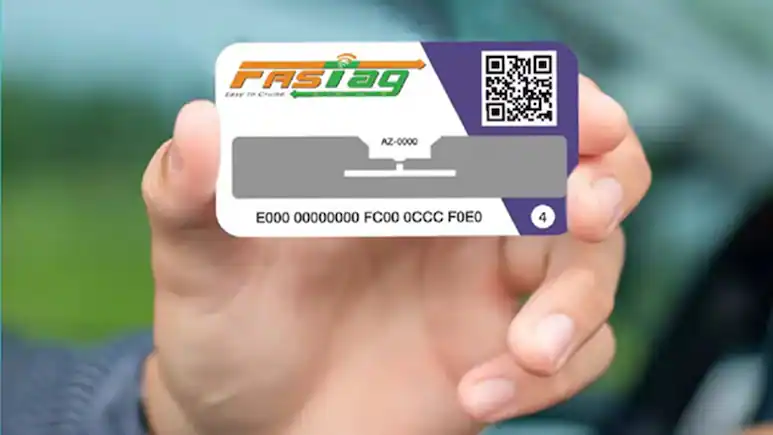New Delhi Unveils Cost-Effective Annual FASTag Pass for Seamless Travel
In a significant move aimed at enhancing the experience of highway travel for Indian commuters, Road Transport and Highways Minister Nitin Gadkari has introduced a revolutionary FASTag-based annual pass. Set to launch on August 15, this new initiative allows non-commercial private vehicle owners to pay a one-time fee of Rs 3,000 for up to 200 trips across national highways, effectively streamlining toll payments and making travel more economical. This announcement came via Gadkari’s post on social media platform X, garnering attention from frequent highway users across the country.
The FASTag annual pass will be valid for one year from the date of activation or until the 200-trip limit is reached, whichever occurs first. According to Gadkari, the initiative aims to simplify the toll payment process and address longstanding concerns about traffic congestion and wait times at toll plazas. “This policy will facilitate seamless and cost-effective travel and significantly minimize disputes at toll plazas,” he stated, showcasing the government’s commitment to improving highway infrastructure and user experience for millions of private vehicle owners.
The annual pass will be accessible through a dedicated activation link on the Rajmarg Yatra App, as well as on the official websites of the National Highways Authority of India (NHAI) and the Ministry of Road Transport and Highways (MoRTH). The implementation of this pass not only promises a more efficient travel experience but also aims to foster a greater sense of convenience for commuters who frequently use India’s national highways.
Change in Toll Policy: A Step Toward Modernization
The announcement comes in light of ongoing discussions regarding new toll policies that could benefit highway users. As per the report by[NDTV](https://www.ndtv.com), previous rumors suggested two potential toll models: an annual FASTag pass for Rs 3,000 and a distance-based option charging Rs 50 for every 100 km traveled. While the former has been confirmed, it remains unclear whether the latter will be operationalized in the future.
One significant aspect of this new initiative is the use of the existing FASTag infrastructure, which is already in place to facilitate electronic toll payments. The government plans to eventually replace conventional toll booths with sensor-based systems that utilize GPS and automated vehicle tracking. This transition aims to allow for barrier-free travel, reducing delays and enhancing the overall user experience on highways.
Moreover, this new initiative aims to address long-standing concerns about toll plazas located within a 60 km range, where commuters often face increased wait times and potential disputes over payments. By simplifying the toll payment process through a single, affordable transaction, the annual FASTag pass is poised to provide a smoother and more efficient travel experience for millions of private vehicle owners navigating India’s vast network of national highways.
As part of this initiative, the government is also taking steps to ensure that the FASTag system operates in tandem with ongoing highway modernization efforts. This includes measures to upgrade existing infrastructure and enhance road safety standards, underscoring the government’s commitment to providing a more reliable and efficient transportation network for all.
Future Prospects: A Journey Towards Seamless Highway Travel
The introduction of the annual FASTag pass marks a significant milestone in India’s efforts to modernize its highway system. Along with the planned incorporation of sensor-based toll collection systems, the government is focused on creating a travel environment that not only minimizes congestion but also enhances user experience.
Given the increasing number of vehicles on Indian roads and the rising demand for efficient transportation solutions, the FASTag initiative addresses crucial issues affecting urban commuters. By providing a more economical option for regular travelers, the annual pass could potentially lead to a decrease in traffic congestion, resulting in shorter travel times and increased satisfaction among commuters.
Additionally, the government’s initiatives for highway upgrades, including the construction of better road infrastructure, improved signage, and adequate rest stops, are all part of a broader vision to enhance the overall safety and convenience of highway travel in India. The combination of these efforts will ultimately contribute to a more seamless travel experience, encouraging more individuals to utilize national highways for both long-distance and everyday travel.
In the coming months, the government is expected to continue its efforts in promoting the FASTag system and raising awareness regarding the new annual pass among vehicle owners. With the activation date just around the corner, many commuters are eager to embrace this innovative toll payment solution that promises to revolutionize highway travel in India.
For more detailed information on highway policies, you can explore related articles on[FASTag Implementation](https://www.nhai.gov.in) and[Government Transportation Initiatives](https://www.morth.gov.in).
By aligning technology with transportation needs, the FASTag annual pass is not just a solution for toll payments but a step toward a more connected and efficient highway network in India. As the launch date approaches, vehicle owners are encouraged to stay updated through official channels to make the most of this newfound opportunity for economical and hassle-free travel.
DISCLAIMER
We have taken every measure to ensure that the information in this article and on our social media platforms is accurate, verified, and obtained from reliable sources. For feedback or complaints, please contact us at info@hamslive.com.


